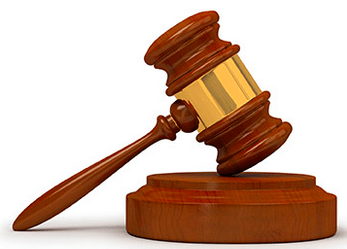On Monday, attorneys for Kentucky resident David Boggs filed the first federal lawsuit regarding the rights of drone operators versus property owners in the United States District Court of Western Kentucky. The suit asks the court to “define clearly the rights of aircraft operators and property owners” as they relate to unmanned aircraft.
Last year, William Meredith of Bullit County (no pun intended), Kentucky, picked up his shot gun and disposed of a drone belonging to Mr. Boggs. Meredith was charged with criminal mischief and wanton endangerment when he shot down the drone. Meredith claimed the drone was spying on his family. After hearing testimony, the judge ruled in favor of Meredith saying, “He had a right to shoot at the drone, and I’m going to dismiss the charge.” A video of the story is here.
Mr. Boggs takes exception to the ruling, claiming that he was approximately 200 feet above the property at the time it was shot down and that he neither viewed nor recorded the defendant’s property.
“The tension between private property rights and the freedom to use the national airspace is important to both the unmanned aircraft industry and the general public,” says James Mackler, Boggs’s legal counsel who leads Frost Brown Todd’s Unmanned Aircraft Systems practice. “Property owners deserve to be free from harassment and invasion of their privacy. Likewise, aircraft operators need to know the boundaries in which they can legally operate without risk of being shot down. This lawsuit will give clarity to everyone.”
The outcome of this case will be significant. At the heart of the lawsuit is a determination on whether navigable airspace is not subject to or comes under private ownership. The suit claims it does not and that the flight of an aircraft within the navigable airspace of the United States cannot constitute a trespass. The Supreme Court has previously stated in the case of manned aircraft that there is no reasonable expectation of privacy in the area surrounding a home in plain view from above. Boggs is asking the court to declare that “a property owner cannot shoot at an unmanned aircraft operating in navigable airspace within the exclusive jurisdiction of the United States.”
”Our client is requesting clarification of the legal issues and to be compensated for the damage to his aircraft,” says co-counsel Chip Campbell, also of Frost Brown Todd. Both Campbell and Mackler are former military aviators who advise clients on a variety of issues relating to unmanned aircraft operation.
This case could set a precedent for consumer drone use, and DroneLife will follow this case to its conclusion.
Frank Schroth is editor in chief of DroneLife, the authoritative source for news and analysis on the drone industry: it’s people, products, trends, and events.
Email Frank
TWITTER:@fschroth
